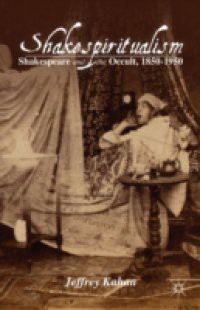Throughout the nineteenth and early twentieth centuries, Shakespeare's ghost appeared again and again at seance tables in London, Paris, Melbourne, and Cape Town, as well as in smaller, rural settings. This study concerns itself with a now-forgotten religious group, Spiritualists, and how its ensuing discussions of Shakespeare's meaning, his writing practices, his possible collaborations, and the supposed purity and/or corruption of his texts anticipated, accompanied, or silhouetted similar debates in Shakespeare studies.

